We like where we live.
February 25, 2016
Most Canadians feel their community is better than average: quality of life is good, economic opportunities could be better
Abacus recently completed an in-depth nationwide study for the Federation of Canadian Municipalities.
This is the first in a series of five story lines based on the results of this work.
FEELINGS ABOUT CANADA AND OUR COMMUNITIES
By and large Canadians have a very good feeling about the country they live in. 90% say it is better than average, including 19% who believe it is the best country in the world, and 49% show say it is one of the best.

When it comes to the communities we live in pride is also pretty strong, with only 7% saying they live in a below average place, and 68% saying their community is good (30%) one of the best in Canada (34%) or the best in the country (4%).

Remarkably, results are fairly consistent whether people live in large cities, medium sized cities, or small towns. While Quebecers as somewhat more enthusiastic about the communities they live in, the differences from one end of the country to the other are rather modest overall.
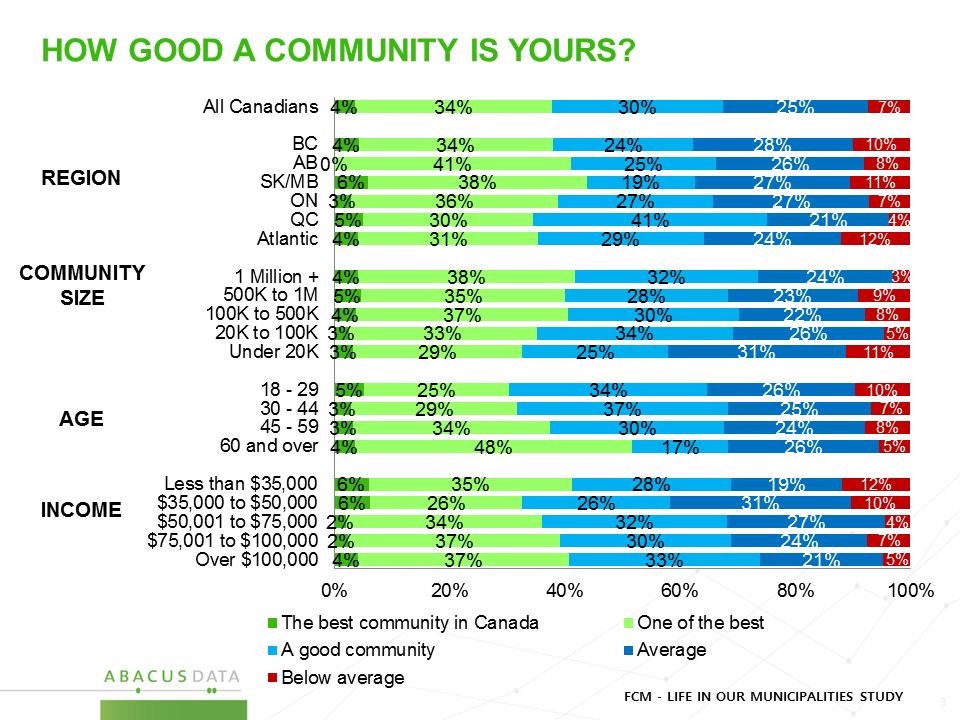
WHAT MAKES US HAPPY/WHAT ARE OUR PAIN POINTS
We asked how happy people were with 29 different aspects of community life, and found that:
• 80% were satisfied with their quality of life, while 62% were satisfied with their economic opportunities.
• 3 in 4 or more were happy with recreational areas and services, garbage and waste management, and policing and safety from crime.
• The areas where happiness was in shorter supply were job opportunities for young people, current economic conditions, local taxes, affordability of housing, and the level of effort put into reducing poverty



One of the topics we were most interested in with this study is to see how responses varied by region and community size. When it comes to feelings about the quality of life in a community results vary not all that much from the biggest cities to the smaller towns, and from one end of the country to the other.
We do observe some differences when it comes to certain items:
• Anxiety about current economic conditions is highest in Alberta
• Concern about housing affordability is highest in BC and is clearly linked to city size
• Concern about local taxes is highest in Quebec, and lower in rural Canada
• Concerns about opportunities for young people are highest in rural and Atlantic Canada
• Concerns about policing are higher in rural areas and Atlantic Canada







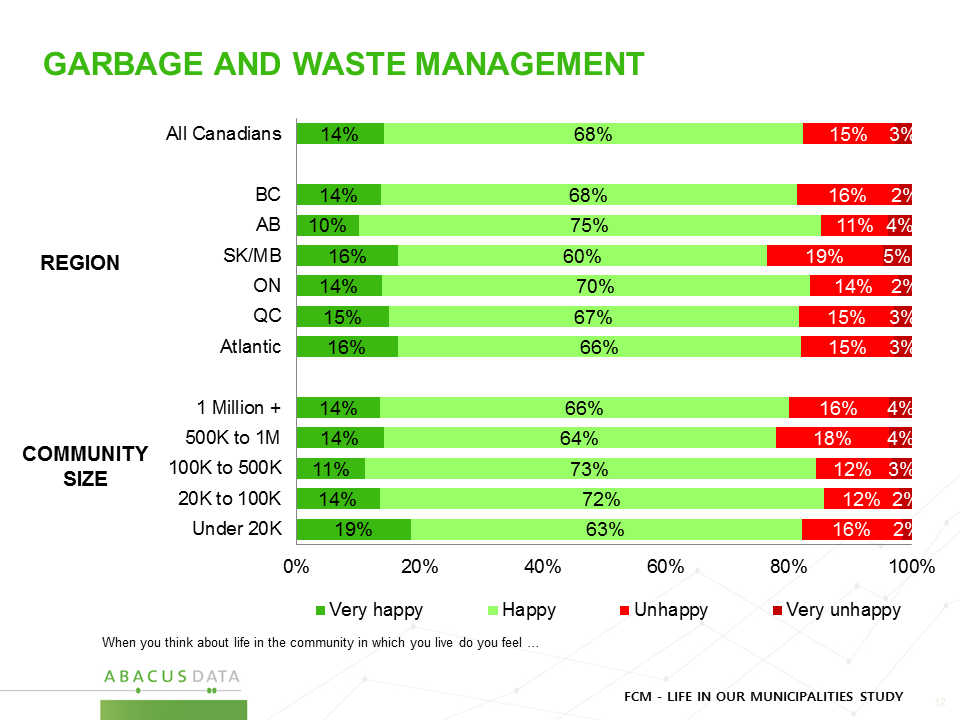
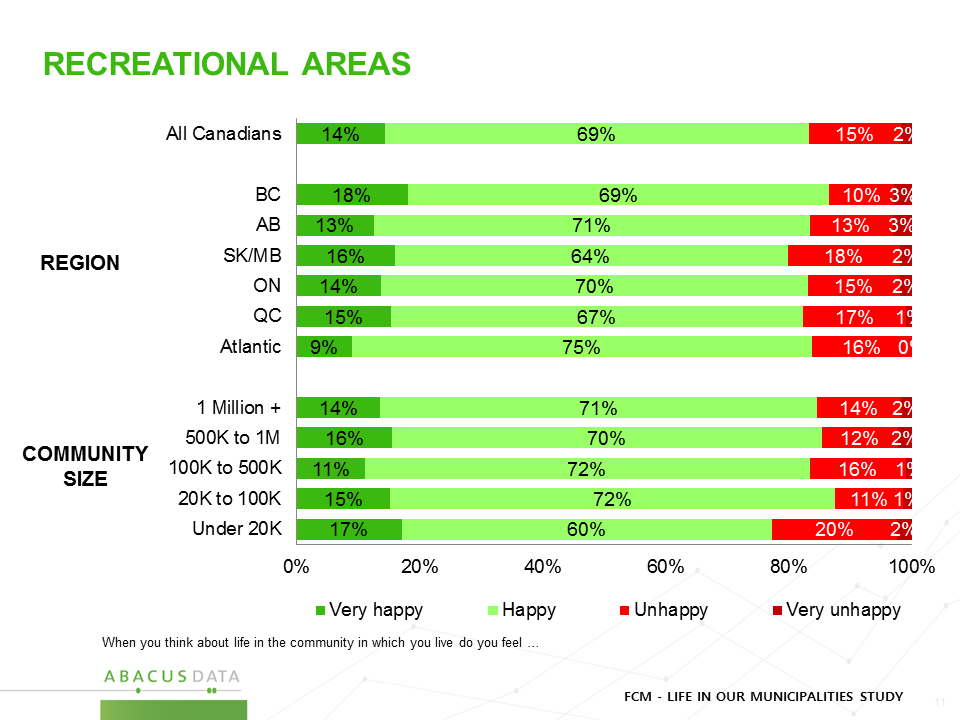

GENERATIONAL PERSPECTIVES
When looking at how happiness varies by age across the areas tested, we found that:
• Quality of life is positively and fairly consistently rated across different generations
• Older people show more anxiety about the economic situation facing the young
• Housing affordability anxiety is fairly consistent across all age groups
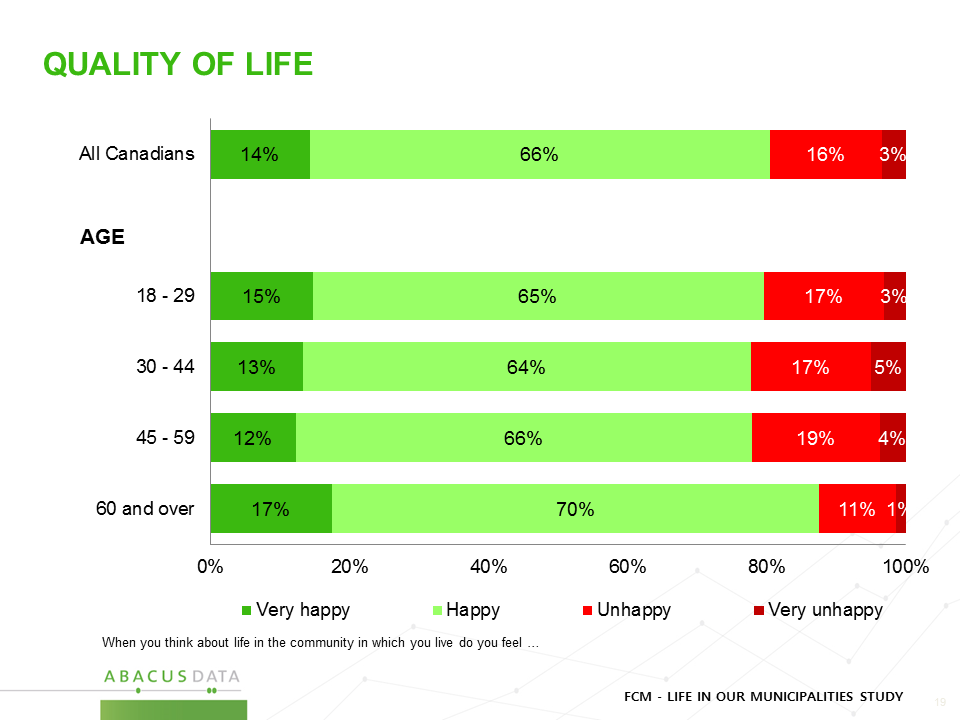
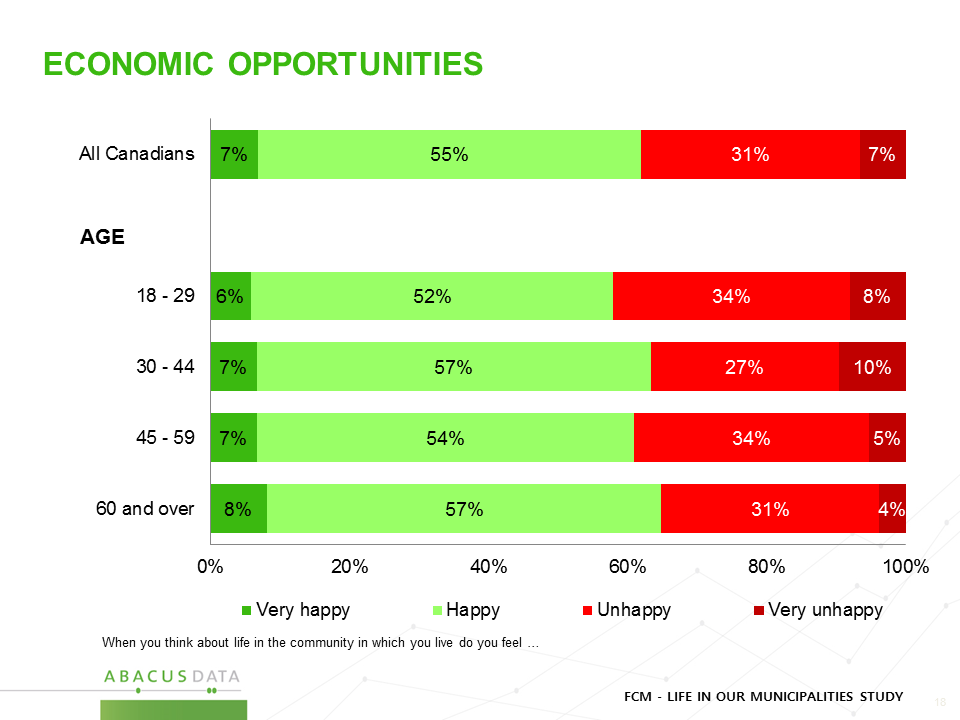
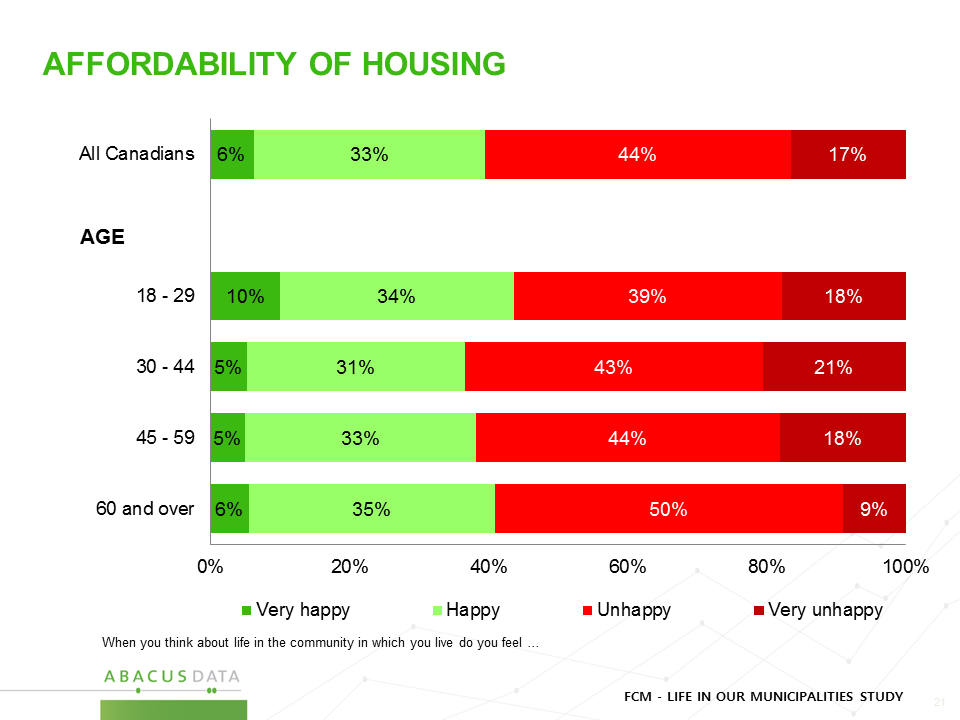
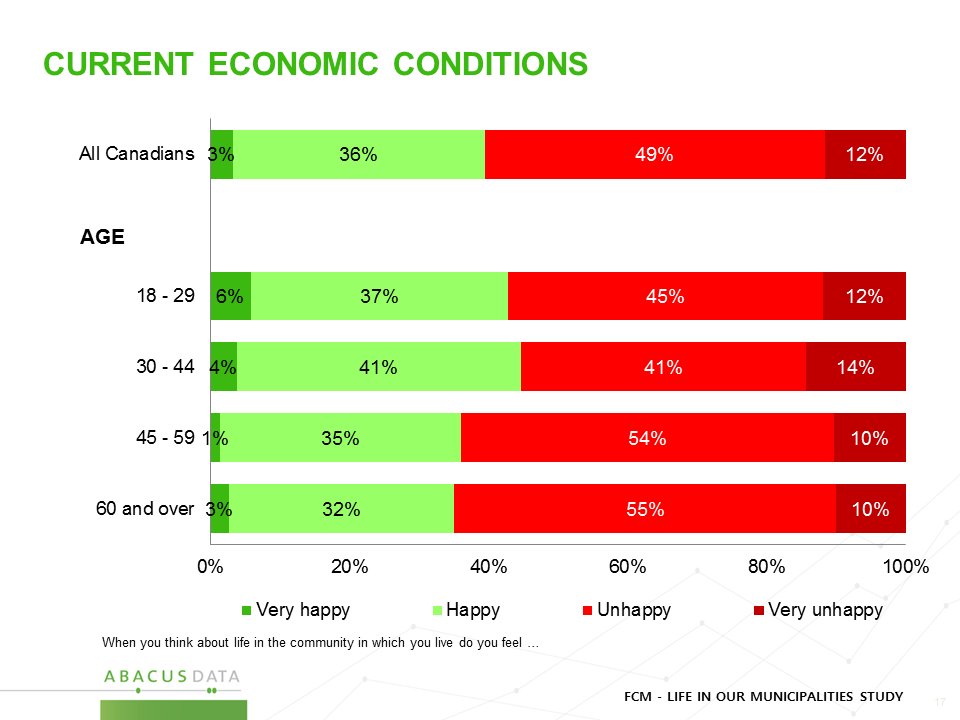
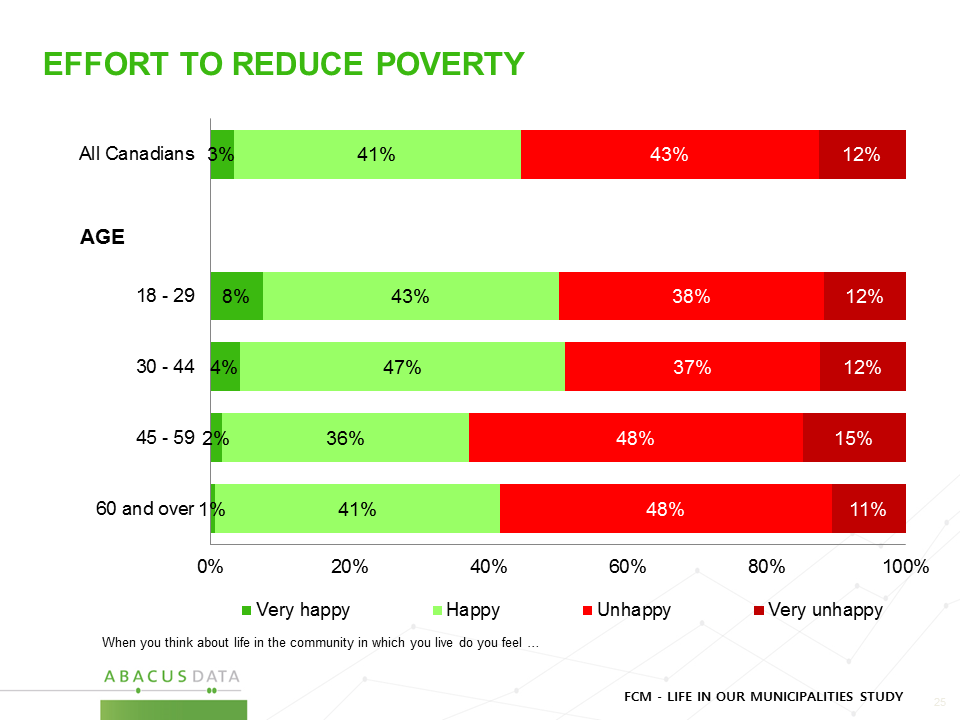
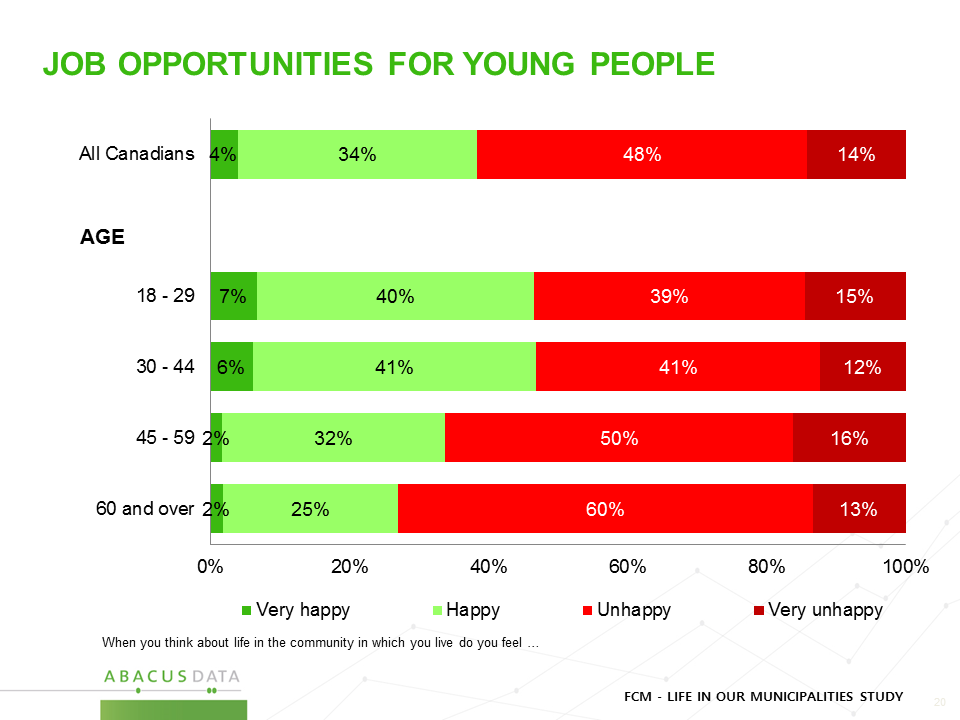
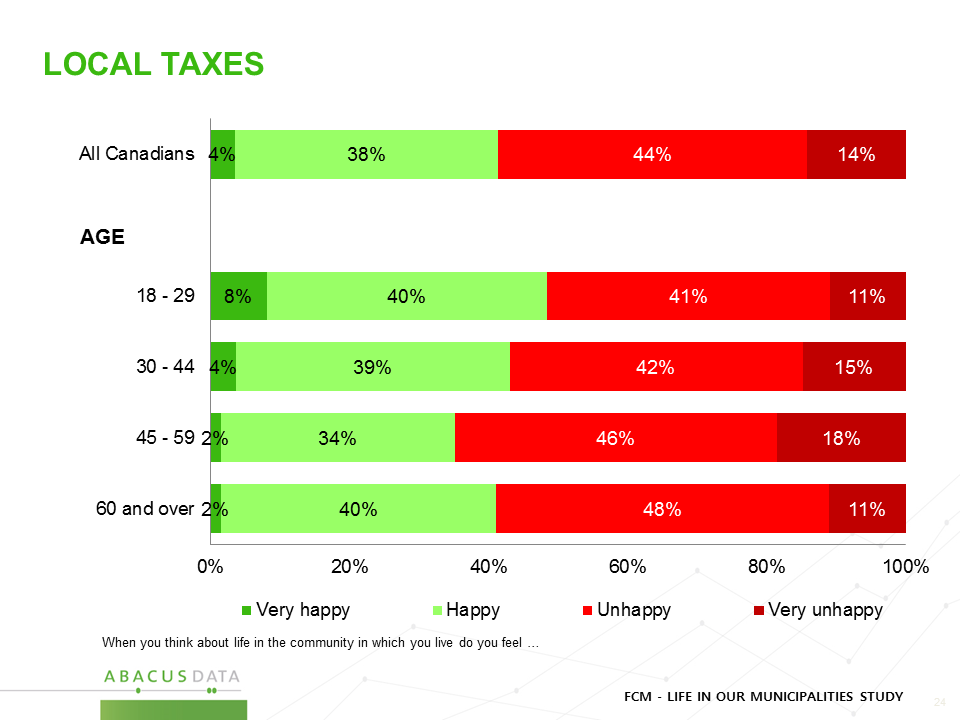
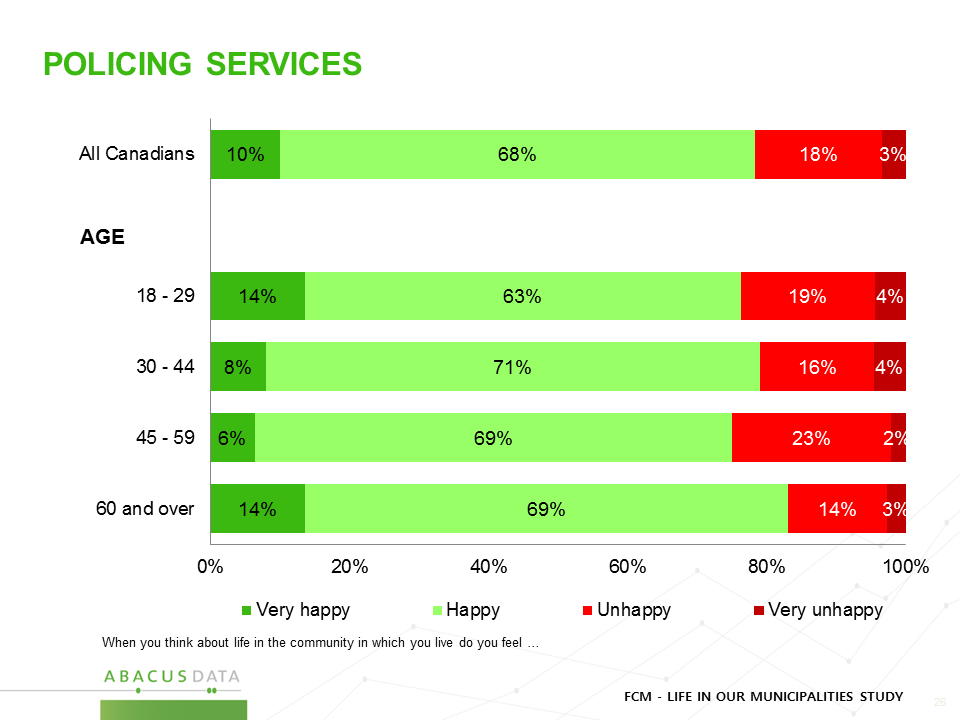


HAPPINESS AND AFFLUENCE
When looking at how happiness varies by affluence across the areas tested, we found that:
• A majority in every income group said they were happy with their quality of life, but happiness levels are clearly higher among those with more money.
• At least half of those in every income group are unhappy with housing affordability, but the level of dissatisfaction rises among those with lower income
• There is a strong correlation between income and feelings about economic opportunity. The less affluent were also less satisfied with efforts to reduce poverty.
• Feelings about local taxes are not really tied to income levels
• Concern about opportunities for young people is high among all income groups.
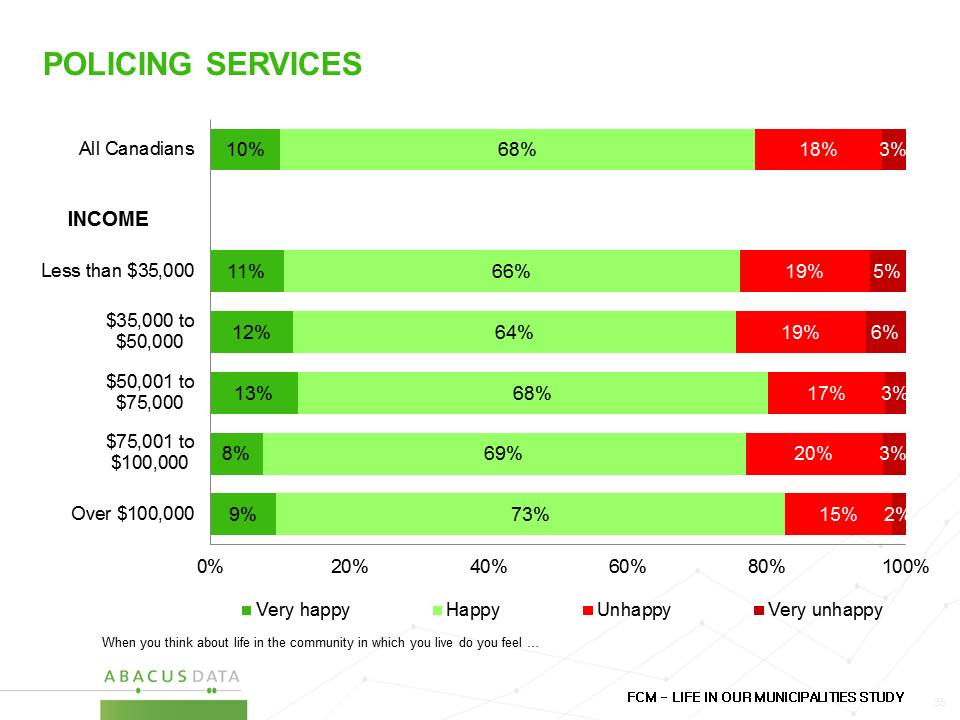
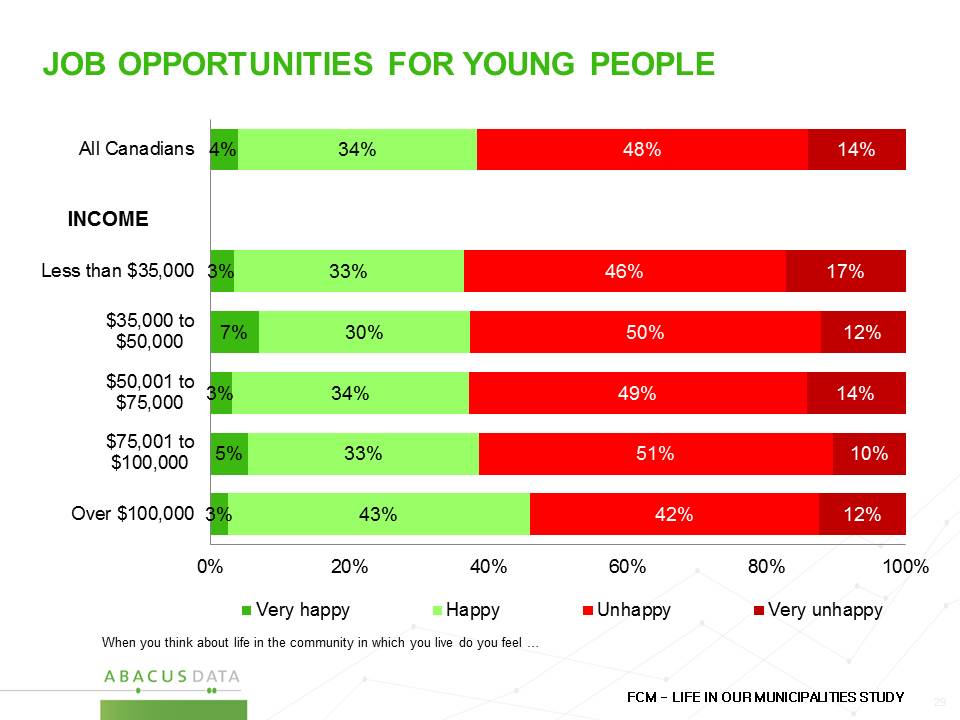
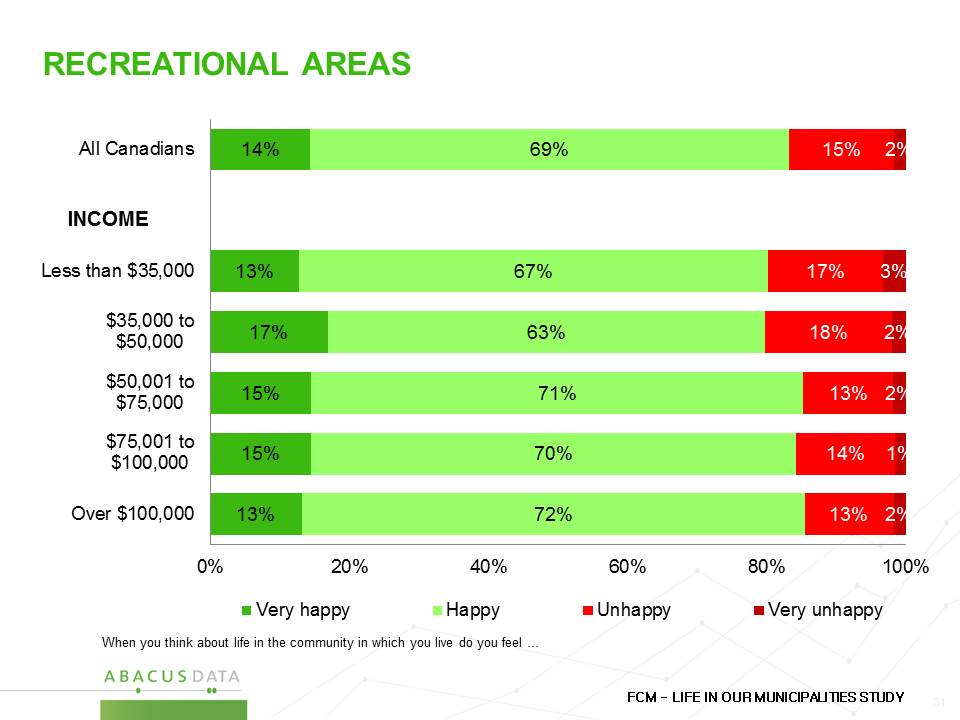
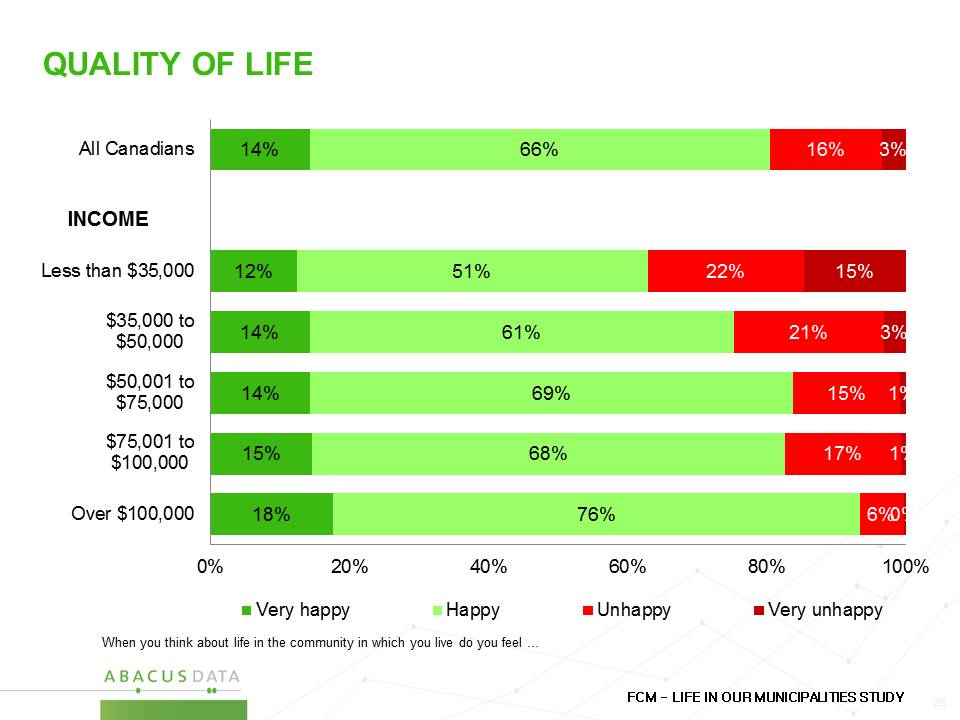
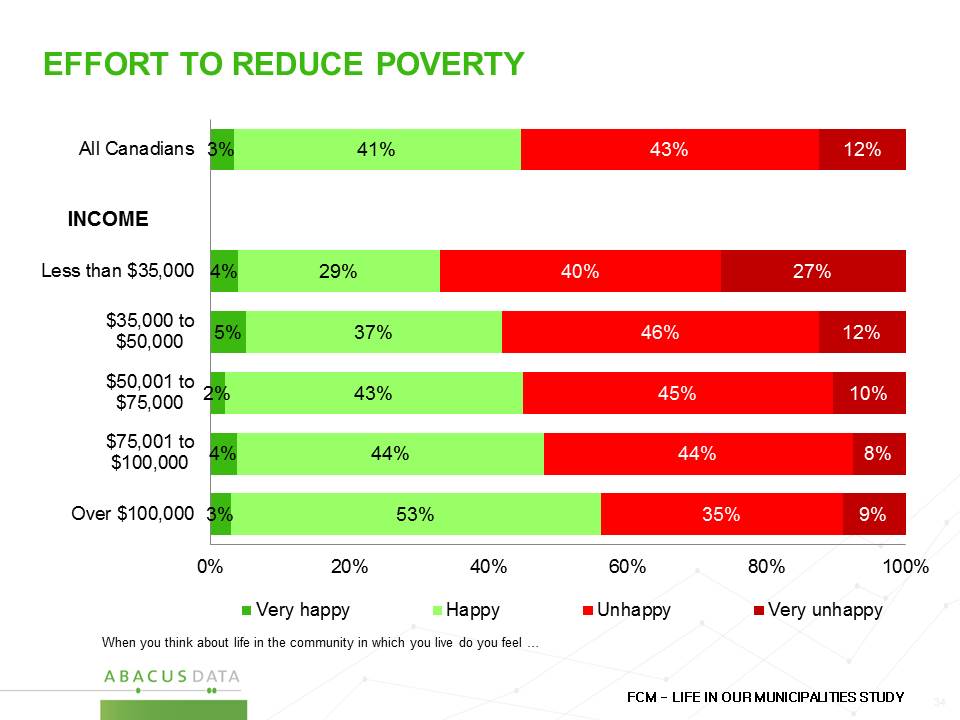
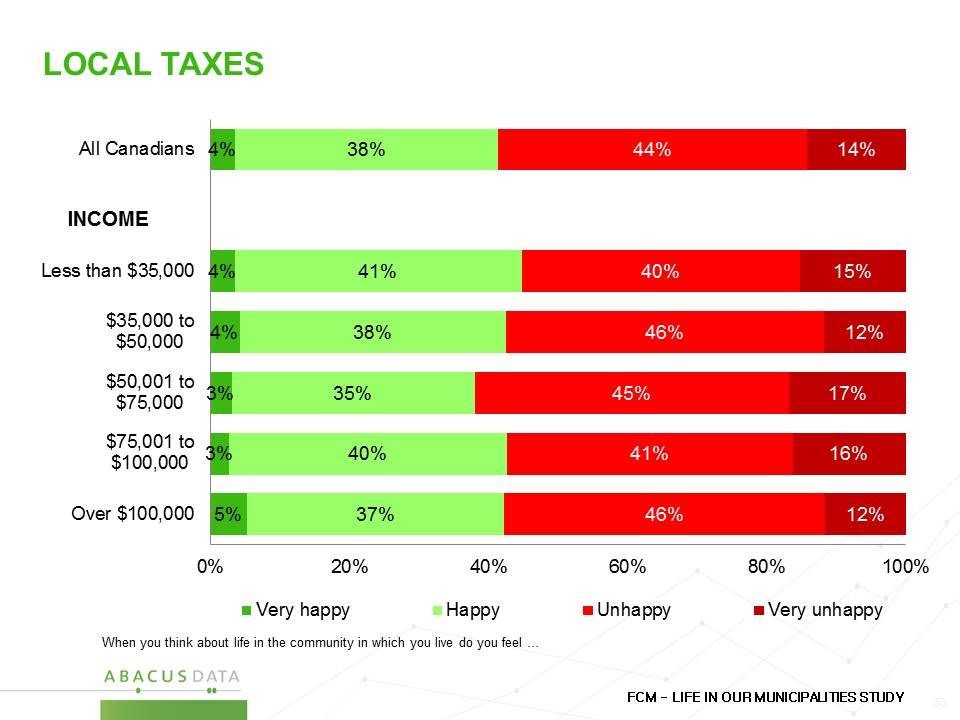
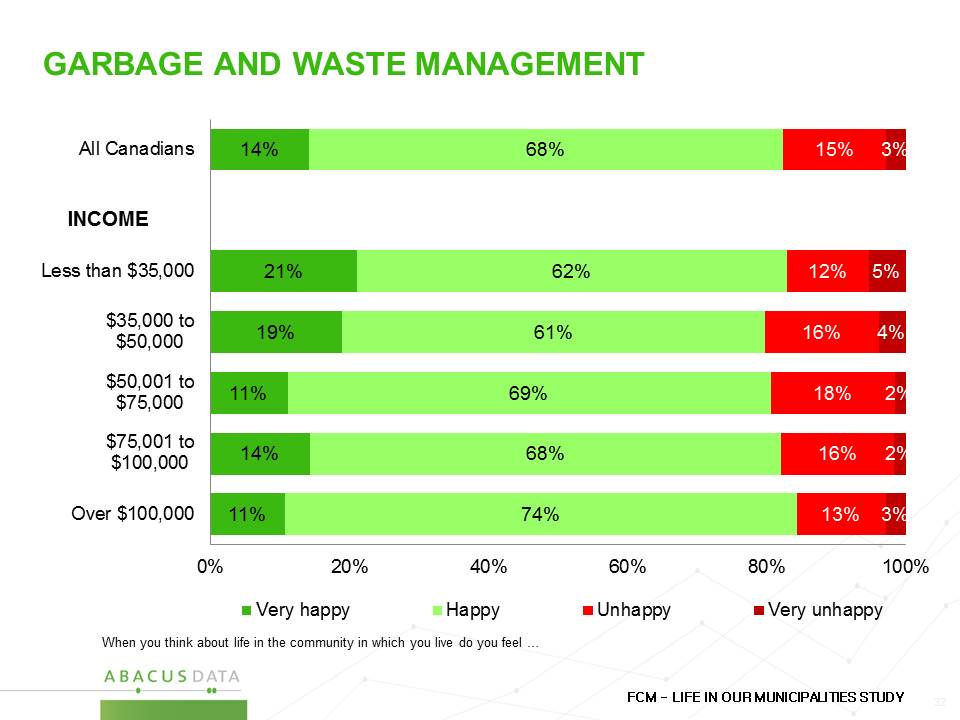

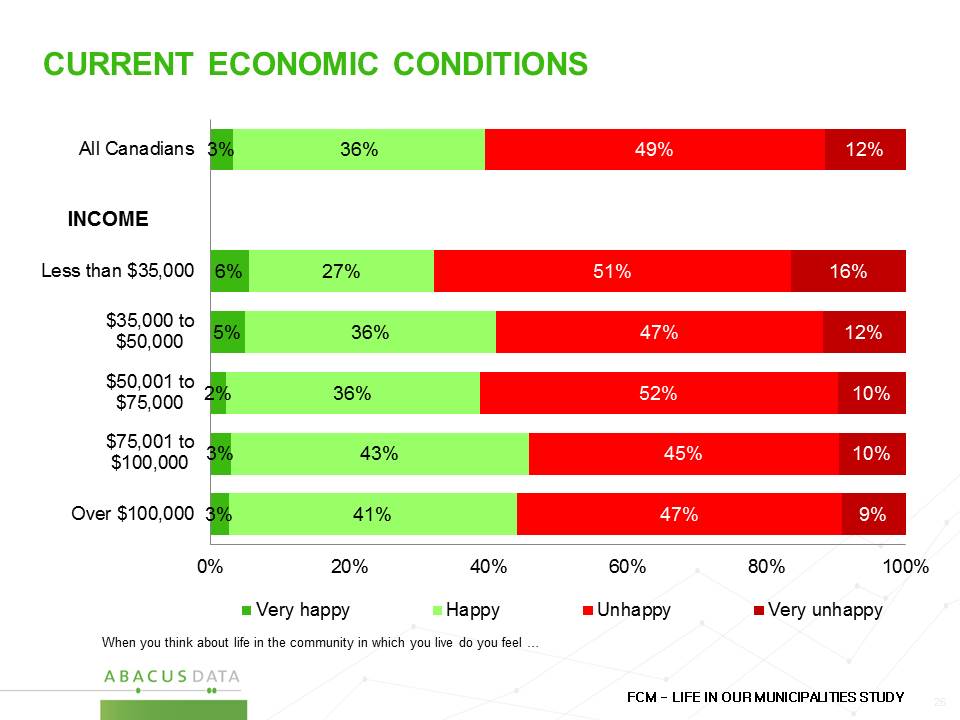


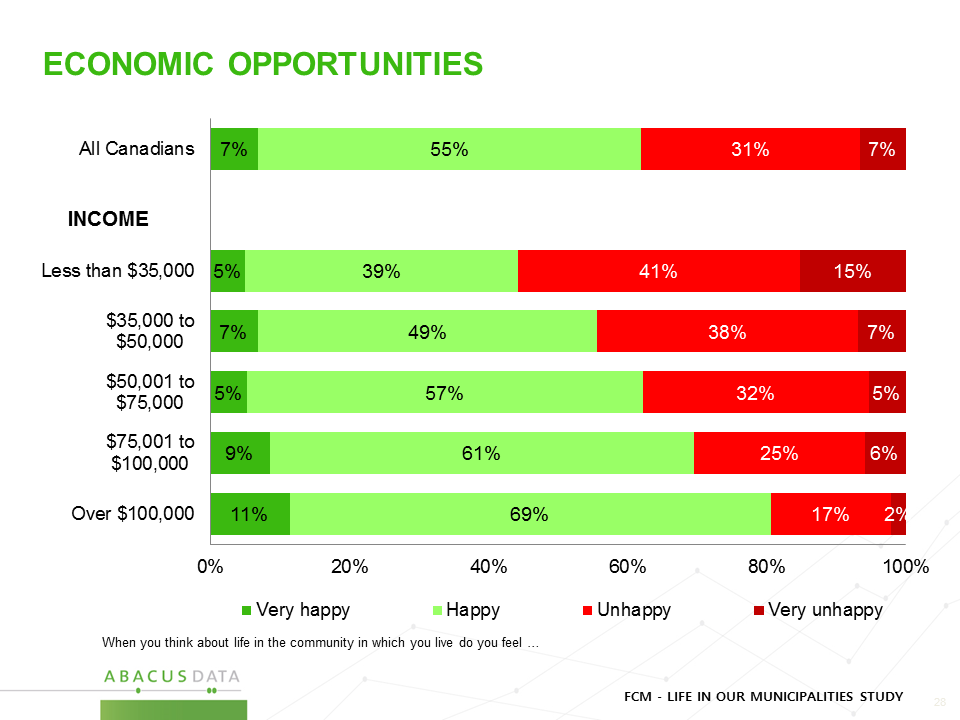
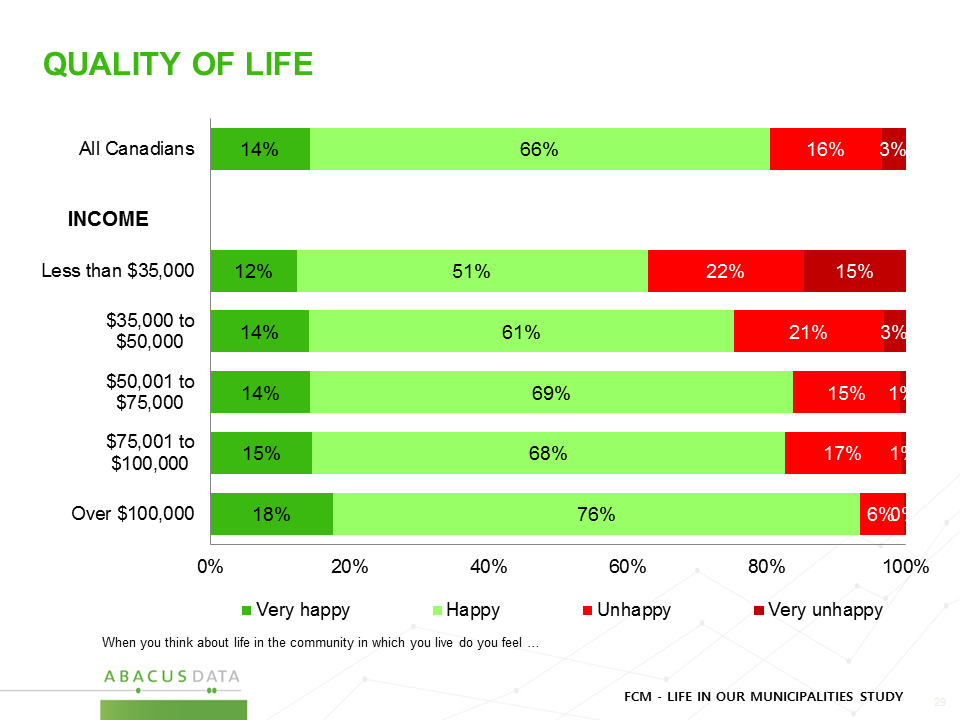
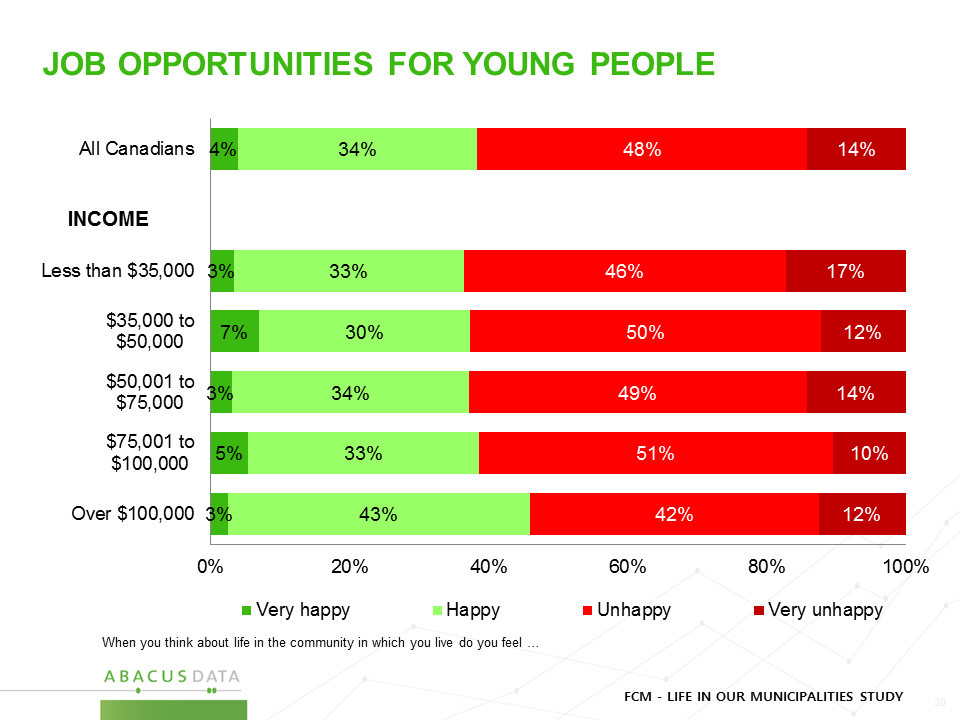
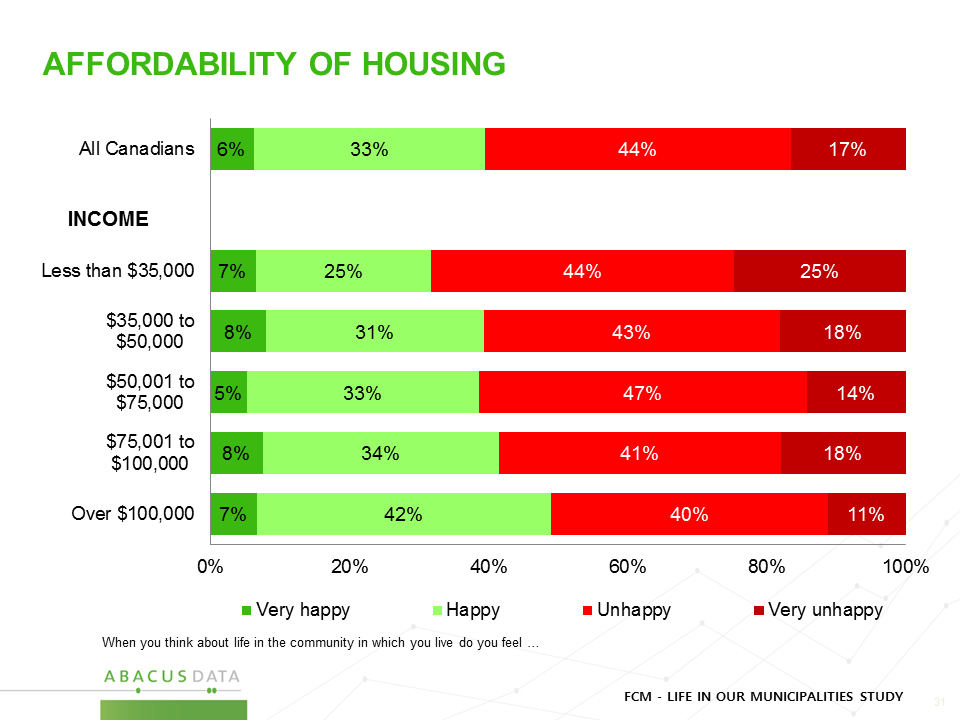
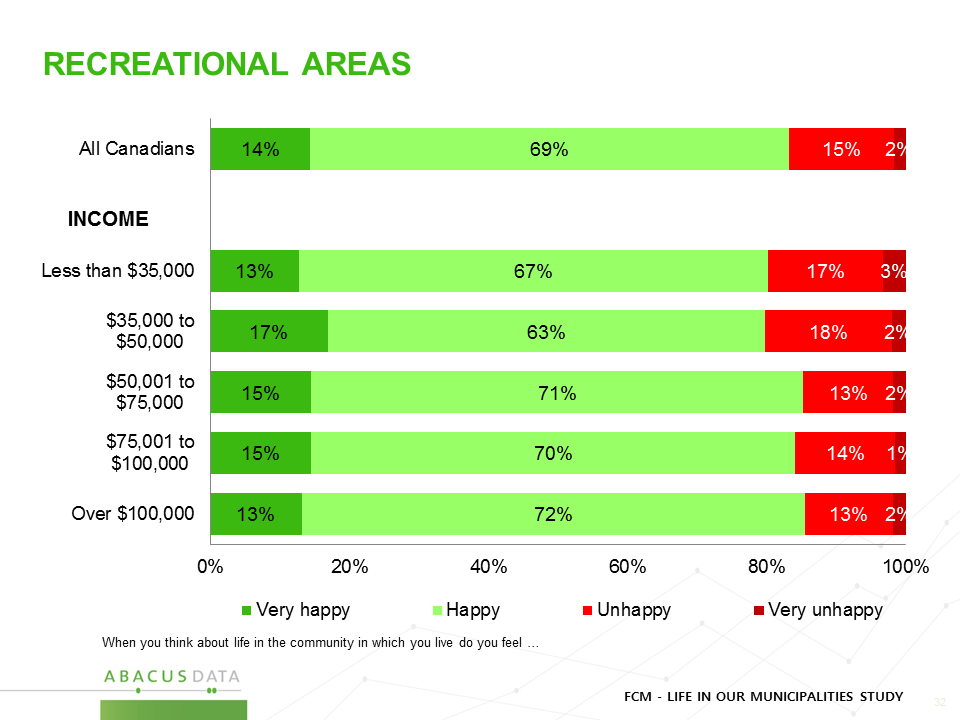

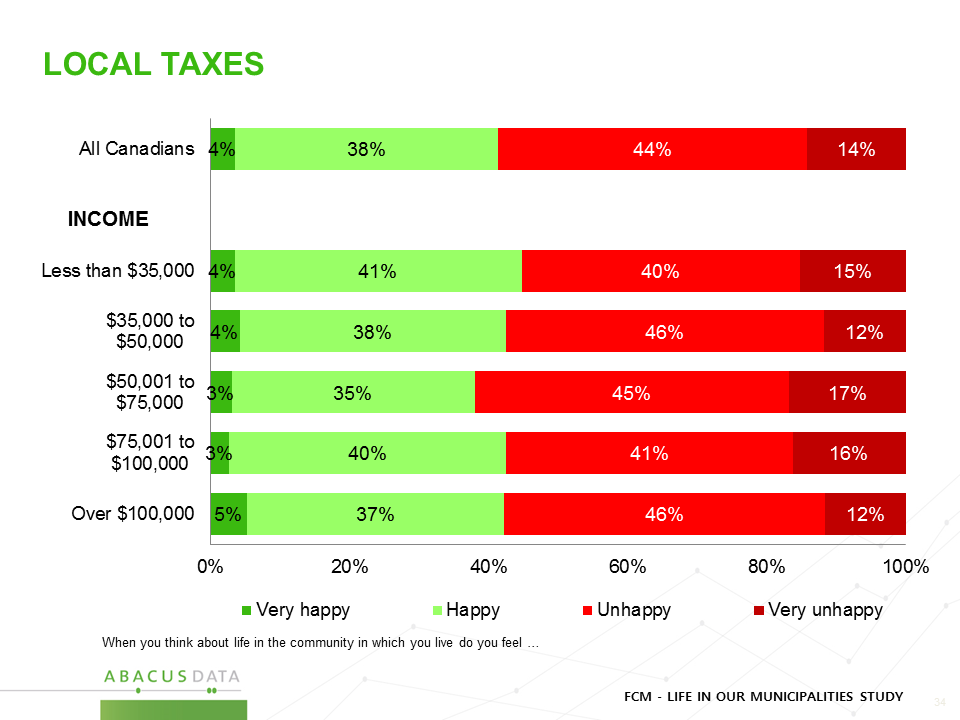
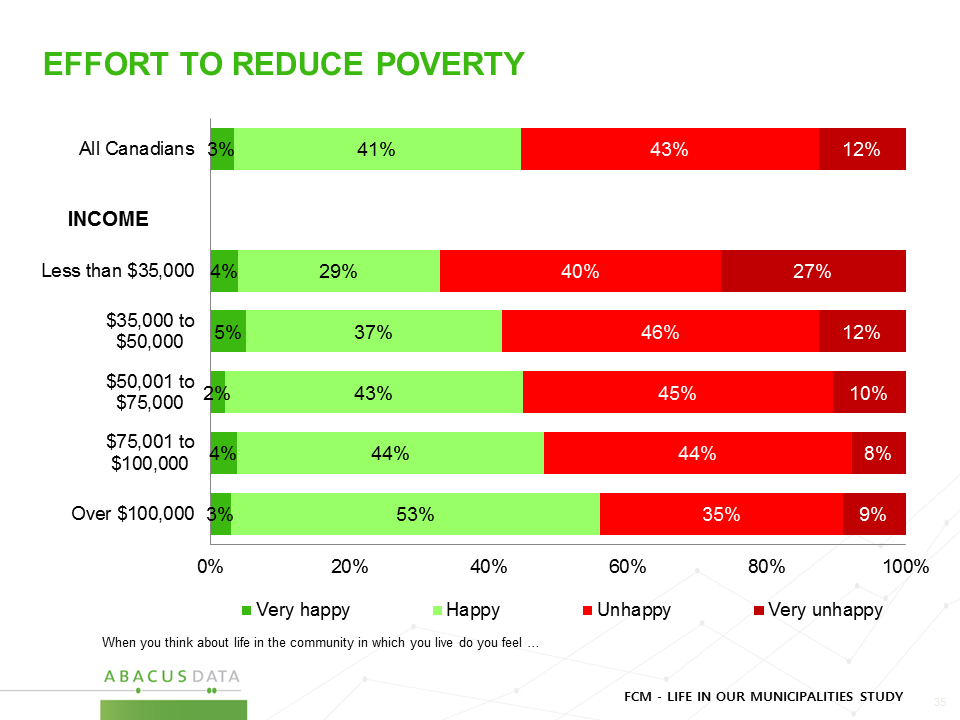
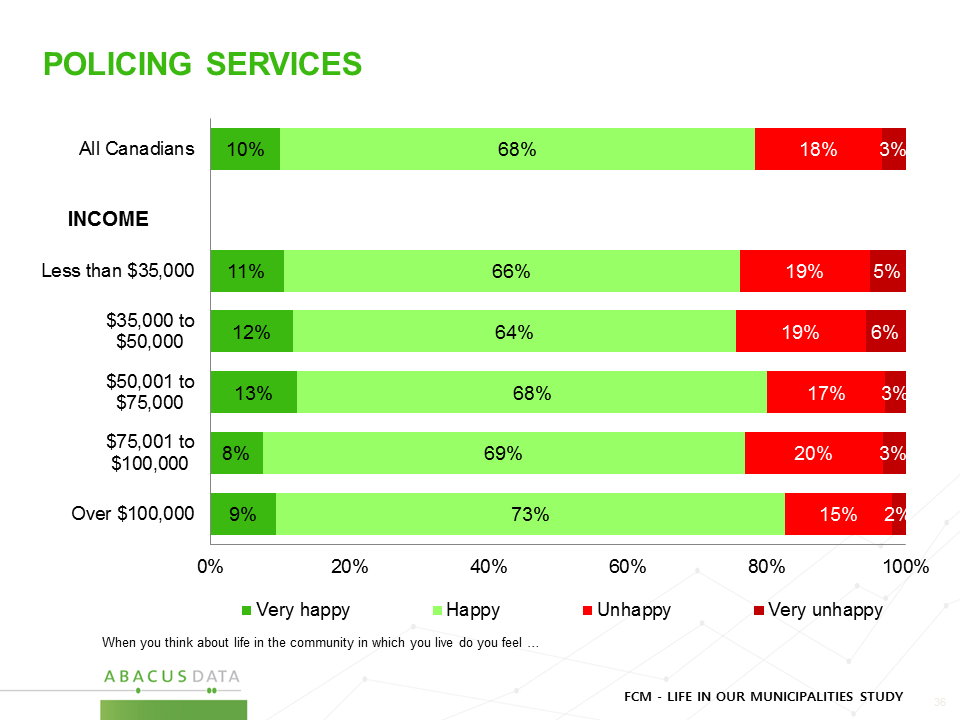
THE UPSHOT
Canadians are generally pleased with the country they live in and the communities they are part of. Remarkably, their positive feelings about where they live have little to do with the size of community or the region of the country they live in.
When it comes to life in Canadian communities most show a high level of satisfaction with the quality of life and a range of municipal services provided (such as policing, waste management and recreational areas), but there are anxieties about the cost of living (including housing and local taxes) today, the amount of economic opportunity and the prospects for young people in particular.
Housing affordability is more intensely felt problem among those with less money and those living in the largest cities. It’s also evident that anxiety about the future for young people is not felt only by those with less money – it is a concern common to Canadians in every region and income group. However, as we have seen in our other studies, young people tend to feel less anxiety about this issue than older people do.
METHODOLOGY
Our survey was conducted online with 1,500 Canadian respondents from January 24 to January 26, 2016. A random sample of panelists was invited to complete the survey from a large representative panel of Canadians, recruited and managed by Research Now, one of the world’s leading provider of online research samples.
The Marketing Research and Intelligence Association policy limits statements about margins of sampling error for most online surveys. The margin of error for a comparable probability-based random sample of the same size is +/- 2.6%, 19 times out of 20 for each province’s sample. The data were weighted according to census data to ensure that the sample matched Canada’s population according to age, gender, educational attainment, and region. Totals may not add up to 100 due to rounding.
Abacus Data Inc.
We offer global research capacity with a strong focus on customer service, attention to detail and value added insight. Our team combines the experience of our Chairman Bruce Anderson, one of Canada’s leading research executives for two decades, with the energy, creativity and research expertise of CEO David Coletto, PhD.




